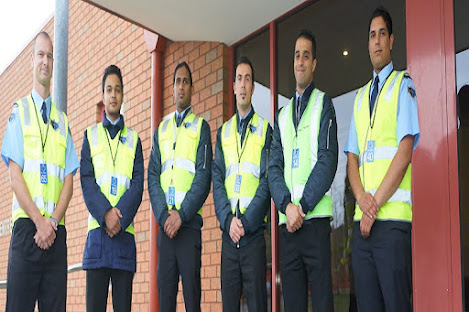The Importance of Professional Training for Security Guards
In the ever-evolving landscape of security challenges, the role of security guards has become increasingly vital. These professionals serve as the first line of defense against potential threats, making their competence and preparedness paramount. Professional training emerges as a cornerstone in shaping security guards into highly skilled and effective assets for safeguarding individuals, businesses, and communities.
The Evolution of Security Threats
As the world grapples with diverse security challenges, ranging from traditional criminal activities to cyber threats, the responsibilities of security guards have expanded significantly. Gone are the days when security personnel only needed physical prowess; today, they must be well-versed in a variety of skills, from crisis management to technological proficiency.
Professional training equips security guards with the knowledge and skills needed to navigate this complex landscape. Whether it's recognizing suspicious behavior, implementing emergency response procedures, or understanding the latest security technologies, a well-trained security guard is better prepared to address a diverse array of potential threats.
Core Components of Professional Training
1. Physical Fitness and Self-Defense
Physical fitness is the foundation of a security guard's capabilities. Professional training programs emphasize the importance of maintaining optimal physical health to perform duties effectively. Additionally, self-defense techniques are taught to enable security guards to protect themselves and others when confronted with physical threats.
2. Emergency Response Protocols
Security guards must be adept at handling emergencies ranging from medical incidents to natural disasters. Training includes comprehensive protocols for responding to various crises, ensuring that security personnel can act swiftly and decisively in high-pressure situations.
3. Communication Skills
Effective communication is a key aspect of a security guard's role. Training programs focus on developing strong interpersonal and communication skills, enabling security personnel to interact professionally with the public, clients, and fellow team members. Clear and concise communication is crucial for diffusing tense situations and coordinating responses to incidents.
4. Legal and Ethical Training
Security guards operate within a framework of laws and ethical standards. Professional training ensures that security personnel are well-versed in legal guidelines, helping them make informed decisions while adhering to ethical principles. This includes understanding the limits of their authority and the importance of respecting individual rights.
5. Technological Proficiency
In the digital age, security threats often have a technological dimension. Training programs incorporate education on the latest security technologies, such as surveillance systems, access control systems, and communication devices. Security guards trained in technology are better equipped to leverage these tools for enhanced security.
6. Crisis Management and Decision-Making
Security guards frequently encounter situations that require quick thinking and decisive action. Training focuses on developing crisis management and decision-making skills, ensuring that security personnel can assess situations rapidly and implement appropriate responses to mitigate risks.
7. Cultural Sensitivity and Diversity Training
Security guards often work in diverse environments. Professional training emphasizes cultural sensitivity and diversity awareness, enabling security personnel to navigate various cultural contexts professionally and avoid misunderstandings.
Benefits of Professional Training
1. Enhanced Security Efficacy
Well-trained security guards are more effective in carrying out their duties. They can identify potential threats, respond to emergencies, and contribute to a safer environment with a higher level of proficiency.
2. Reduced Liability and Legal Risks
Training programs that cover legal and ethical aspects help mitigate the risk of security personnel engaging in inappropriate or unlawful actions. This not only protects individuals and property but also shields security companies from legal liabilities.
3. Improved Public Relations
Security guards serve as ambassadors of the entities they protect. Training in communication and interpersonal skills ensures that security personnel interact positively with the public, enhancing the overall image of the organization.
4. Adaptability to Evolving Threats
The security landscape is dynamic, with new threats constantly emerging. Professional training equips security guards with the skills to adapt to changing circumstances and effectively counter evolving security challenges.
In the realm of security, the importance of professional training for security guards Melbourne cannot be overstated. A well-trained security force is an invaluable asset, capable of addressing a wide range of threats while upholding legal and ethical standards. As security challenges continue to evolve, investing in comprehensive and ongoing training programs is essential to ensure that security guards remain at the forefront of safeguarding our communities and businesses.


.jpg)

Comments
Post a Comment